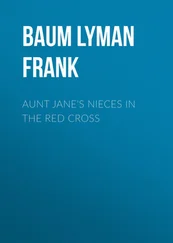Lena-Sofia Tiemeyer - Jonah Through the Centuries
Здесь есть возможность читать онлайн «Lena-Sofia Tiemeyer - Jonah Through the Centuries» — ознакомительный отрывок электронной книги совершенно бесплатно, а после прочтения отрывка купить полную версию. В некоторых случаях можно слушать аудио, скачать через торрент в формате fb2 и присутствует краткое содержание. Жанр: unrecognised, на английском языке. Описание произведения, (предисловие) а так же отзывы посетителей доступны на портале библиотеки ЛибКат.
- Название:Jonah Through the Centuries
- Автор:
- Жанр:
- Год:неизвестен
- ISBN:нет данных
- Рейтинг книги:4 / 5. Голосов: 1
-
Избранное:Добавить в избранное
- Отзывы:
-
Ваша оценка:
- 80
- 1
- 2
- 3
- 4
- 5
Jonah Through the Centuries: краткое содержание, описание и аннотация
Предлагаем к чтению аннотацию, описание, краткое содержание или предисловие (зависит от того, что написал сам автор книги «Jonah Through the Centuries»). Если вы не нашли необходимую информацию о книге — напишите в комментариях, мы постараемся отыскать её.
Jonah through the Centuries
should
Jonah through the Centuries
Jonah Through the Centuries — читать онлайн ознакомительный отрывок
Ниже представлен текст книги, разбитый по страницам. Система сохранения места последней прочитанной страницы, позволяет с удобством читать онлайн бесплатно книгу «Jonah Through the Centuries», без необходимости каждый раз заново искать на чём Вы остановились. Поставьте закладку, и сможете в любой момент перейти на страницу, на которой закончили чтение.
Интервал:
Закладка:
Modern Literary Interpretations
The biblical Book of Jonah has been the subject of multiple literary retellings, ranging from individual poems to whole novels and theatrical dramas. In addition, a huge number of literary works contain allusions to the Jonah narrative. In these retellings, Jonah often becomes a representative of humanity: haunted by God, persecuted, and exiled. Jonah is turned into our alter ego as he embodies our own struggles with God. There are three prevalent tropes in these modern retellings: Jonah who runs away from his calling, Jonah the refugee, and Jonah who questions God’s justice.
Jonah Running Away from His Calling
Many scholars have pondered the issue of Jonah’s flight from God’s command in Jonah 1:3. In literature, Jonah’s flight is often used to explore the futility of fleeing from God and his calling. A good example is the Swedish novel Guldspiken ( The Golden Nail ) by Peter Nilson. Using the motif of a lay preacher seeking to escape his calling, the novel dialogues with the Book of Jonah in order to explore a person’s feeling of despondency when faced with the inability of avoiding their God-ordained fate.
Jonah’s flight and his ensuing time inside the fish is sometimes more widely understood to represent the human struggle with God and our sense of alienation from God and the world. Paul Auster, for example, employs the motifs of ‘being inside the whale’ as a leitmotif throughout his book The Invention of Solitude to designate the estrangement that characterizes much of post-holocaust Jewry. Jonah’s struggle with God is also the topic of several poems. Gabriel Preil compares himself to Jonah, as he describes an existence torn between faith and a desire to flee from it. Enrique Lihn likewise expresses his own sense of unease with the fickleness of his existence through the lens of the Book of Jonah.
A subset of these retellings deals with the Jewish experience of never being able to run away from being chosen by God. The notion of the Jewish people carrying a burden and having a responsibility towards God and towards the Gentile world is expressed poignantly by Kadia Molodowsky in her poem ‘Jonah’. It expresses in a heart-breaking manner the Jewish experience through the lens of Jonah’s calling. Jonah the Jew can never escape from being part of God’s chosen people.
Jonah the Refugee
Other, related retellings turn the trope of ‘the fleeing Jonah’ into ‘Jonah the refugee’: Jonah is a man whom God abandoned. These retellings stem from Jonah 2:5 [Eng. 2:4], where Jonah expresses how he is cast out from God’s presence. They gain further inspiration from the affinity between the dialogue of God and Jonah in Jonah 4 and that of God and Cain in Gen 4. The comparison is triggered by the shared use of the Hebrew verb ḥarah = ‘to be angry’, as well as by the shared rare expression milifne Adonai = ‘from before the Lord’ (Jonah 1 and Gen 4). This intertextuality fashions Jonah as a type for the ‘wandering Jew’. This notion comes to the forefront in the novel The Strange Nation of Rafael Mendes by Moacyr Scliar, where the Jonah narrative lends structure to the novel.
Jonah and God’s Justice
In the biblical narrative, Jonah’s flight from God is explained in Jonah 4:2 – Jonah knew that God is prone to showing compassion. The question then becomes: why did Jonah not wish God to show compassion on Nineveh? Many modern retellings of the Book of Jonah maintain that the key problem is God’s failure to uphold justice and the concomitant failure to withhold mercy. The pivotal issue is the balance between mercy and justice: can true mercy exist in the absence of true justice? Put aptly by the literary theorist Terry Eagleton, Jonah refused to obey God because there did not seem to be any point in obeying him. This issue forms the central question in a range of modern literary interactions with the Book of Jonah, among them Robert Frost’s play A Masque of Mercy , where the central figure Jonah Dove argues that God is obliged to punish the wicked; he must do so in his role as supreme and just deity. God, however, has failed to carry out this task. Taking a more explicit stand, Harald Tandrup envisages Jonah as ultimately rejecting God’s perspective. What is the point when God does not punish the guilty? Other retellings lament Jonah’s failure to be compassionate. The musical rendering by Samuel Adler, Der Mann ohne Toleranz , for instance, mourns Jonah’s inability to accept God’s decision to pardon Nineveh.
The Fish
No introduction to the Book of Jonah is complete without discussion of the fish. Notwithstanding its relatively minor role in the biblical narrative, it has fascinated most interpreters and as a result has generated what might seem to be a disproportionally large number of interpretations. Frankly, most people are familiar with the story of how the fish swallowed Jonah; significantly fewer people can say something insightful about the message of the Book of Jonah.
The fish is particularly interesting because of its varied reception. It metamorphoses throughout the centuries: from being God’s obedient servant, it turns into a monster which ultimately becomes a symbol of death and hell. This ‘monstrification’ of the fish has already begun in the intertestamental literature, where Jonah’s ordeal in the fish is compared with Daniel’s ordeal in the lions’ den (e.g. Joseph and Aseneth , Hellenistic Synagogal Prayers ). By contrast, later rabbinical Jewish interpretation takes pains to uphold its benevolent character, to the point that the fish becomes Jonah’s guide through the netherworld (e.g. the Jewish-Hellenistic sermon On Jonah , PRE ).
A unique aspect of Jewish interpretation of the fish is surely the concern about its biological gender. This issue stems from the changes to the Hebrew word for ‘fish’, from being referred to as dag to daga and then back to dag again. The longer form has traditionally been understood as a feminine form, giving rise to a set of wondrous interpretations that Jonah was being swallowed by two consecutive fish: first a male fish and then a female fish. At first, Jonah was swallowed by the male fish, but he was not sufficiently uncomfortable in its belly to turn to God. To rectify this apparent problem, God appointed a female fish, pregnant with multiple little fish. Once inside her, Jonah was so cramped that he began to pray to God for his deliverance. This interpretation continued to have its adherents in the mediaeval ages (e.g. Rashi), whereas others sought alternative explanations of the changing vocabulary (e.g. Ibn Ezra).
Turning to Christian interactions with the fish, very early on it becomes a symbol of death (Matt 12:40). This tradition culminates in mediaeval art, as exemplified in the various depictions of hell as the mouth of a massive sea monster (e.g. the old English poem ‘The Whale’). The same tradition is also found, albeit in a very different form, in Jewish mysticism ( The Zohar ). In patristic interpretation, two intertwined motifs appear: the womb and the tomb. For Cassiodorus, for example, the fish is a type for hell where Jesus spent the time between Good Friday and Easter morning, yet it was also a safe haven for the prophet Jonah where he was kept alive and safe from a watery death. In later Protestant interpretations, Luther and Calvin return to the more biblical imagery: they agree that the fish was a horrific monster, yet nonetheless it kept Jonah alive.
Finally, the obsession with the fish persists into modern days, where Jonah’s time inside the fish often serves as a symbol of life in exile or the diaspora, both in art (e.g. Zalmanovich Abeshaus) and in literature (e.g. Rodoreda).
Читать дальшеИнтервал:
Закладка:
Похожие книги на «Jonah Through the Centuries»
Представляем Вашему вниманию похожие книги на «Jonah Through the Centuries» списком для выбора. Мы отобрали схожую по названию и смыслу литературу в надежде предоставить читателям больше вариантов отыскать новые, интересные, ещё непрочитанные произведения.
Обсуждение, отзывы о книге «Jonah Through the Centuries» и просто собственные мнения читателей. Оставьте ваши комментарии, напишите, что Вы думаете о произведении, его смысле или главных героях. Укажите что конкретно понравилось, а что нет, и почему Вы так считаете.












